
2024, Identity Resolution at a Tipping Point for Marketers
Interest in Identity Resolution has hit an all-time high in 2024. With Google’s continued push to phase out third-party cookies, marketers are feeling greater pressure to effectively understand and target their current and future customers. For the past few years, we’ve seen marketers react to threats of cookie deprecation: Google would threaten, marketers would scramble, Google would delay implementation, and marketers would delay innovation.
Not any longer. Now, with Google’s initial 1% implementation through the rollout of their new Tracking Protection feature, marketers are moving forward in earnest to “own their consumer identity” – despite the fact that cookie deprecation may be further delayed by challenges from the industry and lawmakers. Google’s goal, of course, is to push marketers to use their Privacy Sandbox Initiative, even though the jury is still out on both the effectiveness of Google’s new tool and, more importantly, the anti-trust implications should they move forward. Regardless of what happens, as new media channels are exploding like CTV, podcasts, and in-app advertising, and traditional channels like SEO and programmatic display advertising are under threat, marketers are appreciating the importance of being in control of their customer relationships. Now more than ever, customer identity and specifically identity resolution, has become critical to marketers’ success and essential for compliance with data privacy regulations and laws.
Underlying every marketing strategy is the fundamental assumption that consumers are addressable, an outcome made possible by identity resolution. Identity resolution provides the connective link between data, technologies, platforms, and individual touchpoints to generate customer insights, target campaigns, and engage with consumers in a personalized fashion across media channels and devices.
Forrester defines identity resolution as:
The process of integrating identifiers across available touchpoints and devices with behavior, transaction, and contextual information into a cohesive and addressable consumer profile for marketing analysis, orchestration, and delivery.
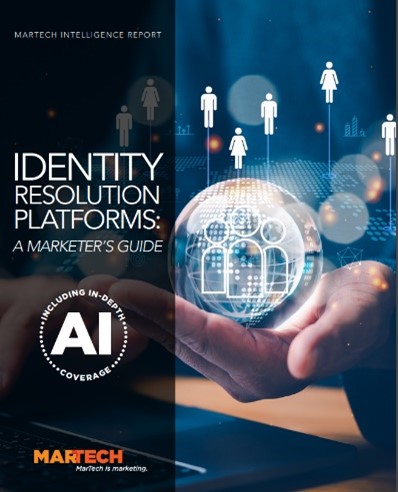
According to Martech Intelligence’s Report: Identity Resolution Platforms a Marketer’s Guide, the market for identity resolution software is expected to grow from $1.2B in 2021 to $2.3B by 2028. Leading the drive for investment is Marketer’s needs around the management of first-party data, the ability to interact in data clean rooms, the rise of CTV, and the effective consolidation of customer data in CDPs, DMPs and CMPs.
To learn more, we suggest you download the full Martech Intelligence Report here. If we look at total market spend on Data, Data Services and Data Infrastructure, the Winterberry Group estimates the market at $31.7B in 2023 up 7.3% from the year prior, led by the increased spending in CDPs, Data Lakes, Data Clean Rooms and Data collection and ingestion tools.
As we look at the market today, we see three trends that continue to drive successful marketers focus: Building the flexibility to work with and consolidate customer data across a myriad of marketing partners, platforms, and media channels; applying the discipline of performance-based marketing against all channels; and the ability to comply with the ever-changing expectations of both consumers and privacy laws. In each case having a strong and controlled identity resolution and management strategy is paramount. Without it, marketers will be limited to the walled gardens of big tech and the policies they dictate on how they can engage their customers. The challenge of course today is that many marketers are not yet in a position to effectively drive an identity resolution or data management strategy to keep up with these trends. As the Winterberry Group noted, only 1/3 of brands surveyed have their data organized effectively across the organization.
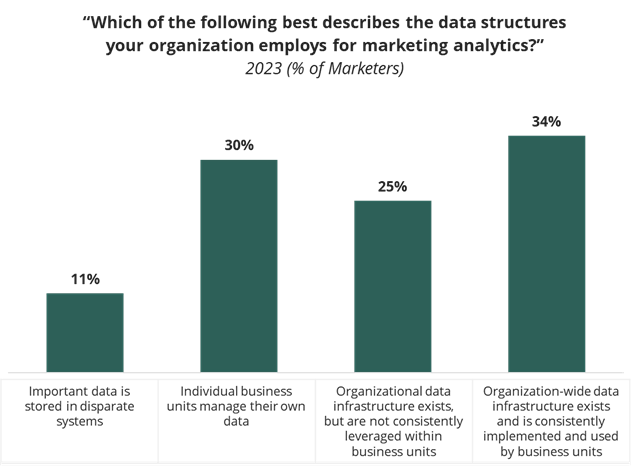
| Source: Winterberry Group Marketing Analysis White Paper (2023) |

As we like to do from time to time, we wanted to zoom in on some of the recent activity in our industry around privacy and data regulations. It is important to understand what is happening not at just the federal level, but also at state and local levels because they can all impact how a brand can market to and service its customers.
The recent Senate Judiciary Committee hearing featuring tech company executives generated extensive news and opinion coverage. The Wall Street Journal, New York Times, and The Washington Postand many other outlets reported on the hearing.The Washington Post, NBC News, The New Republic, and Cato Institute, reported on opposition to the Kids Online Safety Act. Two news articles (1, 2) in The New York Times quoted those who were more optimistic about its chances of passage. An op-ed in The Wall Street Journal by Peggy Noonan recounted the hearing and was skeptical it would lead to legislation.
A survey of 1,500 consumers by IAB found that respondents would want to be paid $38,000 per year to stop free access to websites and apps currently supported by advertising. Nearly three-in-four consumers understand that sharing their data enables websites and apps to know more about them to serve personalized ads, and about 70% are willing to share their personal data to support advertising overall. Nearly three-in-four consumers understand that sharing their data enables websites and apps to know more about them to serve personalized ads, and about 70% are willing to share their personal data to support advertising overall.
The New York Times reviewed legal and First Amendment challenges to state legislation that aims to protect children online.
The Connecticut Attorney General provided a report to the General Assembly’s General Law Committee on enforcement of the Connecticut Data Privacy Act. The Office of the Attorney General has issued over a dozen cure notices as well as broader information requests in the six months since the law took effect. Bloombergand Hartford Businesscovered the report.
EPIC and the U.S. PIRG Education Fund released “The State of Privacy: How State ‘Privacy’ Laws Fail to Protect Privacy and What They Can Do Better.” The report graded the 14 states that have passed privacy legislation and criticized tech company advocacy for laws that “largely fail to protect consumers.” The Record, State Scoop, Indianapolis Star, and the Chicago Sun-Timeswere among the outlets that highlighted the report.
The Record reviewed tech companies lobbying for state data privacy laws.
Route-Fifty reported on state data privacy legislation being considered this year.
California Attorney General Rob Bonta, Senator Nancy Skinner, and Assemblymember Buffy Wicks introduced the Protecting Youth from Social Media Addiction Act (SB 976), and the California Children’s Data Privacy Act (AB 1949). SB 976 would give parents the choice of whether users under the age of 18 would receive a chronological feed from users they already follow or the current default, an algorithmic feed. Additionally, parents and guardians would have the choice of halting social media notifications and blocking access to platforms for minors during nighttime hours and during the school day. AB 1949 would amend the CCPA to prohibit businesses from collecting, using, sharing, or selling personal data of anyone under the age of 18, unless they receive informed consent or unless doing so is strictly necessary for the purpose of the business. For users under 13, this informed consent must come from a parent. The bill authorizes the Office of the Attorney General to enforce the law and seek injunctive relief, damages, or civil penalties of up to $5,000 per violation.
A newsletter article by Ad Exchanger’s James Hercher questioned whether marketers have overestimated the value of first-party data, citing the short shelf life of first-party cookies and device IDs, changing email addresses, and other obstacles.
U.S. trade negotiator Katherine Tai said the dominance of a few tech giants in the global collection and flow of data requires stricter restrictions on how it’s shared and stored.
Senators Blumenthal and Blackburn announced changes to the Kids Online Safety Act and shared that the bill now has 62 co-sponsors. The Electronic Frontier Foundation said it opposes the amended bill which it said is “still an unconstitutional censorship bill that continues to empower state officials to target services and online content they do not like.” The Washington Post, The Verge, The Hill, Fox News, NPR, Axios, and other outlets covered the announcement.
Senators Markey and Cassidy announced that Senators Cruz and Cantwell have signed on as co-sponsors of an updated version of their COPPA 2.0 legislation. The authors said the amended bill “includes small modifications based on conversations with stakeholders and additional technical corrections.” “I am proud to work with Senators Markey and Cassidy on a bipartisan basis to try to get this bill over the finish line. We have to protect the next generation and allow for America’s children to have the privacy they deserve. This legislation would bring children and teens’ online privacy standards into the 21st century and limit them from being subjected to targeted advertising and harmful data collection practices,” Senate Majority Leader Chuck Schumer said.
FTC Commissioner Alvaro Bedoya said he opposes laws that seek to restrict teens from using social media and said in an interview with The Washington Post that he has “a hard time seeing how” such law “would survive First Amendment scrutiny.” Instead, Bedoya said he supports legislation to ban targeted advertising to kids.
The Information Technology & Innovation Foundation released a new report that called for Congress “to step in and establish a consistent national approach to digital policy.” The report calls for uniform and preemptive federal laws in 10 areas, including data privacy, data breach notification, and children’s online safety.
U.S. District Court Judge Algenon Marbley of the Southern District of Ohioruled that Ohio’s Parental Notification By Social Media Operators Act violates the First Amendment rights of minors as well as tech companies and granted a request for a preliminary injunction to prevent its enforcement. “Foreclosing minors under sixteen from accessing all content on websites that the Act purports to cover, absent affirmative parental consent, is a breathtakingly blunt instrument for reducing social media’s harm to children,” Marbley wrote.
New York City filed a lawsuit against TikTok, Instagram, Facebook, Snapchat, and YouTube, seeking to hold the companies “accountable for their role creating the youth mental health crisis in New York City.” The lawsuit alleges that companies intentionally designed their platforms to purposefully manipulate and addict children and teens to social media applications.
In a letter to the European Data Protection Board (EDPB), a group of 28 organizations, including NOYB, the Irish Council for Civil Liberties, Wikimedia Europe, and the Electronic Privacy Information Centre, saidEurope‘s privacy enforcers should oppose Meta Platforms‘ ad-free subscription service launched in Europe last November because it requires users to pay a fee to ensure their privacy.
Over 100 companies have been hit with a crop of lawsuits claiming their disclosures of police officers, prosecutors and judges violated a New Jersey Statute called Daniel’s Law. A Jersey City, New Jersey, company, Atlas Data Privacy Corp., brought the suits as an assignee of claims from police officers who assert that the defendant companies refused requests to remove online postings of their personal information. Atlas alleges that they are agents for over 20,000 members of the NJ law enforcement community. We encourage all marketers to ensure they are appropriately seeking counsel about this law.

If you want to learn more about Adstra in person, here are few upcoming events that Adstra will be attending. Feel free to reach out to us and we would be happy to meet with you. You can always reach us at connect@adstradata.com.
| Event | Date | Location |
| RampUp | February 27-29, 2024 | San Francisco, CA |
| The Nonprofit Technology Conference | March 13-15, 2024 | Portland, OR |
| TNPA Capital Hill Day | March 20, 2024 | Washington DC |
| DMAW – Nonprofit Fundraisers Symposium | March 20-22, 2024 | Washington DC |
| Digiday Publishing Summit | March 25-27, 2024 | Vail, CO |
| Brand Innovators: Marketing Innovation Summit | April 18, 2024 | Chicago, IL |
| Beeler.Tech Navigator NYC | May 1, 2024 | New York, NY |
We also want to highlight two key opportunities to showcase outstanding direct mail, multi-channel and digital fundraising efforts:
DMAW Maxi Awards – Submit your entries by April 5th, judging will run from April 22nd – May 3rd, with the award Ceremony held in DC on 10/22/24.
Click here for more information.
DMFA Awards – Early bird entries are due by March 8th, with the final deadline on March 22nd. Winners will be selected and announced at the DMFA Awards Celebration on June 6th in NYC.
Click here for more information.

Tensions between Big Tech and Media have mounted for years. 2024 Will be a Tipping Point
By Jason Bier – Chief Privacy Officer/ General Counsel – Adstra

Controlling Scale and Accuracy in the Modern ID Era
By Bryan MacDonald – Chief Product Officer – Adstra
CTV’s IP Targeting Band-Aid doesn’t hold up to Privacy Standards
By James Hsu – VP of Identity Product – Adstra
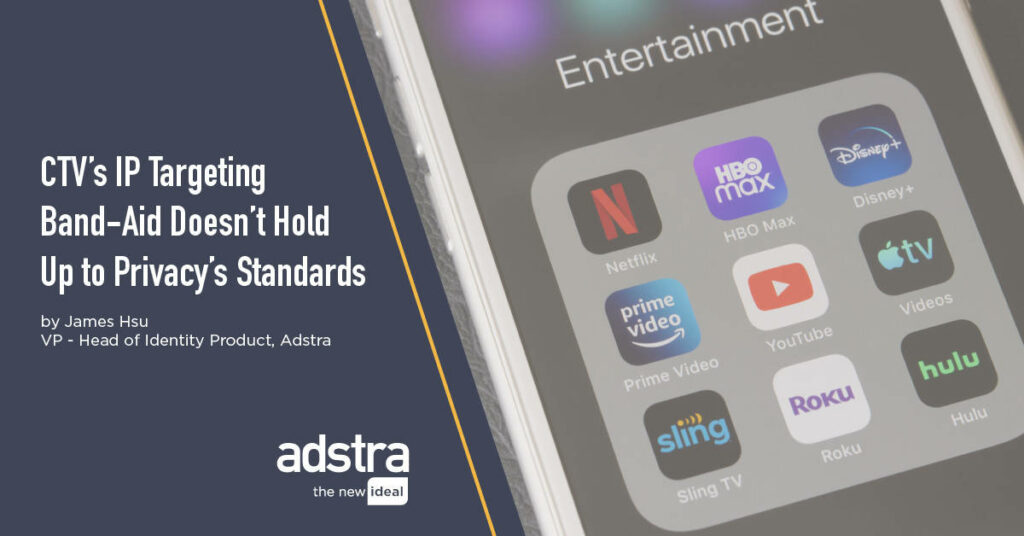
Can Marketers tackle AI-powered Identity Resolution by themselves
By Charlie Swift – EVP Head of Marketing & Account Management – Adstra
Lance Brothers Appointed as Chief Revenue Officer of Adstra – Globe Newswire, January 8, 2024

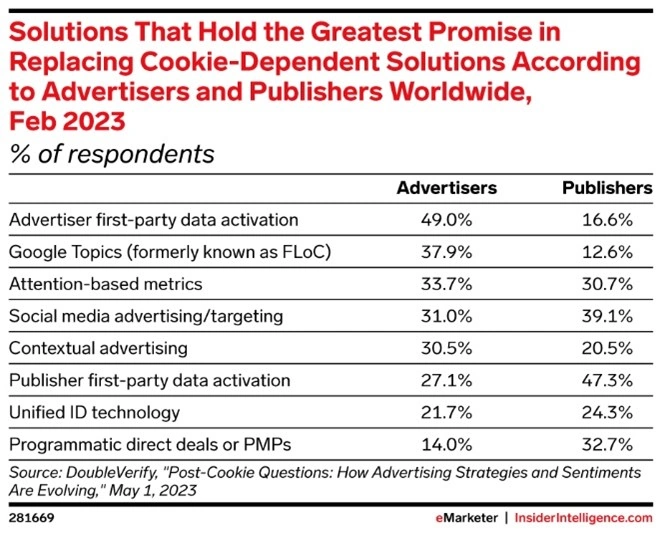
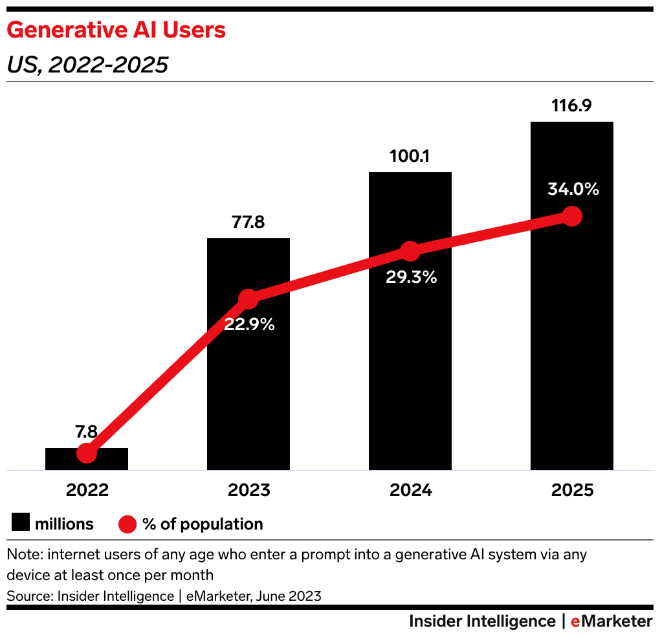

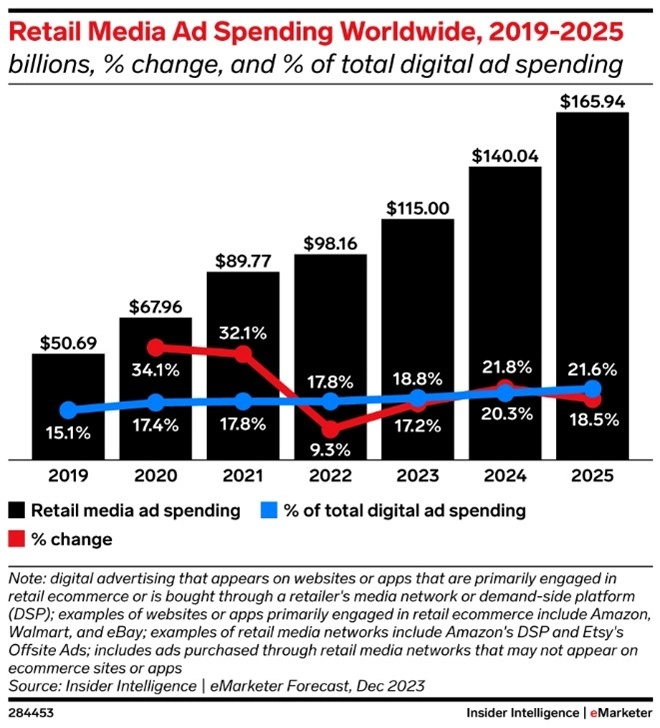
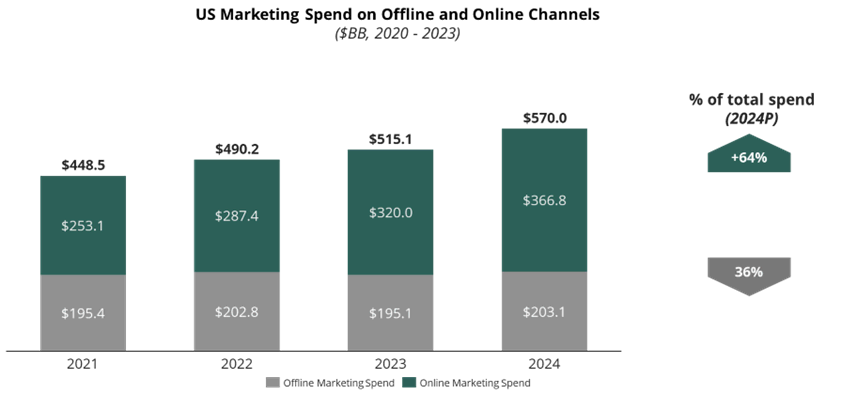
Source: Winterberry Group (2024)
To learn more about what we do or are interested in previous newsletters, please visit our website at Adstradata.com or follow us on LinkedIn@Adstra
Welcome to the new ideal.




